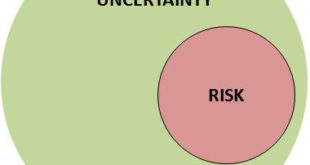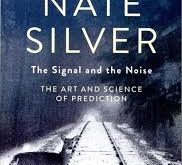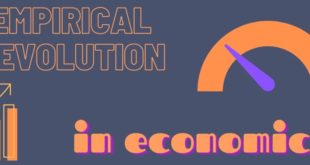Model uncertainty and ergodicity Post Keynesian authors have offered various classifications of uncertainty … A common distinction is that of epistemological versus ontological uncertainty, with the former depending on the limitations of human reasoning and the latter on the actual nature of social systems … Models of ontological uncertainty tend to hinge on the existence of information that is critical to the decision-making task. Fundamental...
Read More »Riksbankens räntechock skadar samhällsekonomin
Nyligen höjde Riksbanken återigen styrräntan. Förhoppningen är att de ökade räntekostnaderna ska dämpa efterfrågan och inflationsförväntningarna och därmed leda till en lägre inflation. Men räntehöjningar kommer sannolikt inte lösa inflationsproblemen. Däremot riskerar de att allvarligt skada den svenska samhällsekonomin. De ökade konsumentpriserna beror inte på låga räntor utan primärt på flaskhalsar från pandemin, ökade energi- och matpriser från kriget i Ukraina, att...
Read More »The misuse of mathematics in economics
The misuse of mathematics in economics Many American undergraduates in Economics interested in doing a Ph.D. are surprised to learn that the first year of an Econ Ph.D. feels much more like entering a Ph.D. in solving mathematical models by hand than it does with learning economics. Typically, there is very little reading or writing involved, but loads and loads of fast algebra is required. Why is it like this? … One reason to use math is that it is...
Read More »DSGE models — a macroeconomic dead end
DSGE models — a macroeconomic dead end Both approaches to DSGE macroeconometrics (VAR and Bayesian) have evident vulnerabilities, which substantially derive from how parameters are handled in the technique. In brief, parameters from formally elegant models are calibrated in order to obtain simulated values that reproduce some stylized fact and/or some empirical data distribution, thus relating the underlying theoretical model and the observational...
Read More »Economists — people biased toward overconfidence
Economists — people biased toward overconfidence Now consider what happened in November 2007. It was just one month before the Great Recession officially began … Economists in the Survey of Professional Forecasters, a quarterly poll put out by the Federal Reserve Bank of Philadelphia, nevertheless foresaw a recession as relatively unlikely. Instead, they expected the economy to grow at a just slightly below average rate of 2.4 percent in 2008 … This...
Read More »The one logic lecture mainstream economists did not attend
The one logic lecture mainstream economists did not attend .[embedded content] Using formal mathematical modelling, mainstream economists sure can guarantee that the conclusions hold given the assumptions. However the validity we get in abstract model worlds does not warrant transfer to real-world economies. Validity may be good, but it is not enough. Mainstream economists are proud of having an ever-growing smorgasbord of models to cherry-pick from (as...
Read More »Is economics nothing but a library of models?
Is economics nothing but a library of models? Chameleons arise and are often nurtured by the following dynamic. First a bookshelf model is constructed that involves terms and elements that seem to have some relation to the real world and assumptions that are not so unrealistic that they would be dismissed out of hand. The intention of the author, let’s call him or her “Q,” in developing the model may be to say something about the real world or the goal may...
Read More »The empirical turn in economics
The empirical turn in economics Ce qui fait l’unité de la discipline est plutôt l’identification causale, c’est-à-dire un ensemble de méthodes statistiques qui permettent d’estimer les liens de cause à effet entre un facteur quelconque et des résultats économiques. Dans cette perspective, la démarche scientifique vise à reproduire in vivo l’expérience de laboratoire, où l’on peut distinguer aisément la différence de résultat entre un groupe auquel on...
Read More »Knowledge and growth
If you have an apple and I have an apple and we exchange these apples then you and I will each have one apple. But if you have an idea and I have an idea and we exchange these ideas, then each of us will have two ideas. George Bernard Shaw Adam Smith once wrote that a really good explanation is “practically seamless.” Is there any such theory within one of the most important fields of social sciences — economic growth? In Paul Romer’s Endogenous Technological Change (1990)...
Read More »On models and simplicity
On models and simplicity When it comes to modelling yours truly does see the point emphatically made time after time by e. g. Paul Krugman about simplicity — at least as long as it doesn’t impinge on our truth-seeking. ‘Simple’ macroeconomic models may of course be an informative heuristic tool for research. But if practitioners of modern macroeconomics do not investigate and make an effort of providing a justification for the credibility of the simplicity...
Read More » Heterodox
Heterodox







